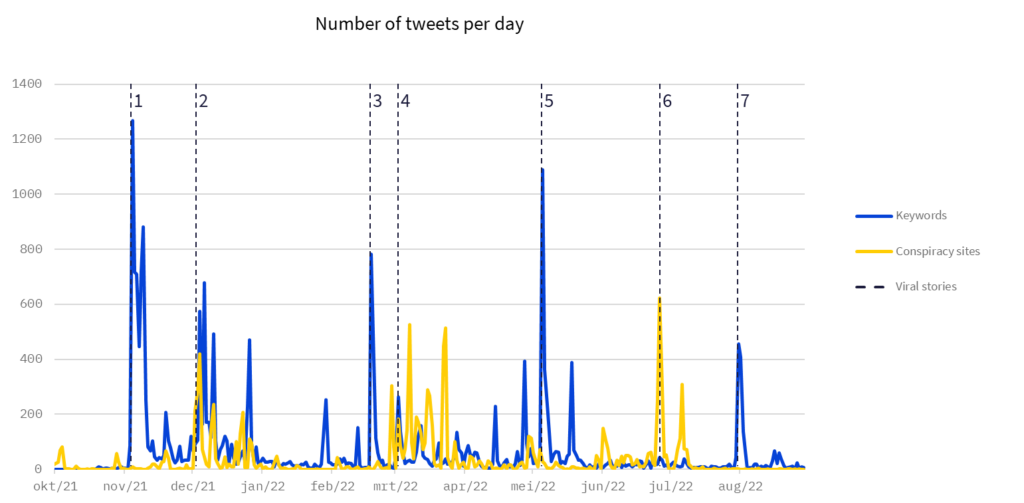
#pfizerpapers: An analysis of disinformation flows about Pfizer’s Covid19 vaccine
Organisations that contributed to this analysis: Bellingcat, Textgain, University of Leuven, Nieuwscheckers.
‘Pfizer Papers’, also referred to as ‘Pfizer Gate’ or ‘Pfizer Leaks‘, are a recurring theme in conspiracy stories regarding Pfizer/BioNTech’s vaccine against Covid19. In a report of the BENEDMO hub, Bellingcat, Textgain, University of Leuven, and Nieuwscheckers analysed the content and spread of those stories in Flanders and the Netherlands.
False claims on vaccine ineffectiveness or hushed-up side effects appear on a regular basis on conspiracy websites and social media. The catalyst is the publication of the 300,000-page Pfizer files by the US Food and Drug Administration (FDA). A court ruling has forced the FDA to release the files on an accelerated basis: about 50,000 pages a month. That periodic publication of information encourages new – factually incorrect – claims about serious side effects, numerous miscarriages or concealed deaths.
BENEDMO’s report analyses Dutch-language posts about the Pfizer Papers on conspiracy sites, on Twitter, and through the work of fact-checkers. Based on a dataset of 35,000 tweets – collected between 11 November 2020 and 29 August 2022 – it shows that on Twitter, traction for the Pfizer Papers happens in short but impactful spikes, following publications on conspiracy sites. The articles that go viral are no longer shared after a day or two.

Attention spikes: The blue line shows the number of tweets per day based on keywords about Pfizer Papers. The yellow line shows the number of tweets that share articles from conspiracy sites about Pfizer Papers. Dotted lines mark the most viral posts.
In terms of content, three recurring narrative themes can be discerned in posts about the Pfizer Papers. The first narrative attempts to label the Pfizer vaccine as ineffective: the vaccine does not work or only works to a limited extent. The second narrative revolves around serious side effects, such as heart problems, blood clots and miscarriages. The third narrative focuses on secrecy: Pfizer would try to keep the documents hidden for at least 75 years.
At first glance, it seems as if each new batch of Pfizer Papers generates new conspiracy stories. But after a closer look it turns out that the ‘news’ continues to rely on older Pfizer documents from 2020 and 2021. Thus, news value is being feigned. The recycling of old claims may explain why publication of new Pfizer Papers since May 2022 generates less attention spikes on social media. For now, the analysis points to a declining influence of the Pfizer Papers as an inspiration for disinformation about Covid19 vaccines.
Find out the full report here (in Dutch).
